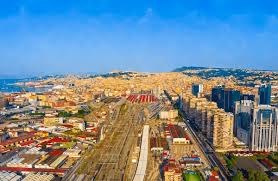Discovering the Rich Tapestry of Naples: A Historical Overview

Introduction to Naples
Naples, the vibrant capital of Italy’s Campania region, is a city steeped in history and culture, renowned for its stunning landscapes overlooking the Bay of Naples and the imposing presence of Mount Vesuvius. As one of the oldest continuously inhabited cities in the world, Naples holds significant importance not only as a tourist destination but also as a cultural and historical hub. Its unique charm attracts millions of visitors each year, eager to explore its rich heritage, exquisite cuisine, and artistic treasures.
Historical Significance
Founded around the 9th century BC by the Greeks, the city was initially known as Parthenope, before being renamed Neapolis, which means ‘New City.’ Over centuries, Naples has been influenced by various civilisations, including the Romans, Normans, and Spanish, each of which left an indelible mark on its architecture and culture. The historic centre of Naples is a UNESCO World Heritage site, showcasing a fascinating blend of ancient ruins, medieval structures, and Baroque masterpieces.
The Cultural Landscape
Naples is famous for its vibrant street life and the culinary delight of Neapolitan pizza, which is now enjoyed worldwide. The city is home to famous landmarks such as the Naples National Archaeological Museum, which houses an extensive collection of artifacts from Pompeii and Herculaneum, and the magnificent Royal Palace of Naples. Artists and musicians thrive in this city, reflecting Naples’ deep-rooted passion for creativity. Theatre, opera, and music are integral to the local culture; the San Carlo Theatre, established in 1737, is one of the oldest opera houses in the world and a testament to Naples’ artistic pedigree.
Recent Developments and Future Prospects
In recent years, Naples has made headlines with improvements in infrastructure and increased investments in tourism. The city aims to enhance visitor experiences while preserving its historic sites. Efforts are also being directed towards promoting sustainable tourism practices, focusing on the region’s environmental conservation while still making it accessible to tourists. Local authorities anticipate that Naples will become a leading destination in Italy, enticing travellers with its unique blend of history, culture, and culinary prowess.
Conclusion
As we look to the future, Naples stands poised to embrace its rich heritage while continuing to evolve as a thriving metropolis. The fusion of tradition and modernity makes it a significant destination for those interested in delving into both the past and present of Italy. For visitors and historians alike, Naples represents a remarkable chapter in the narrative of human civilization, waiting to be explored.









